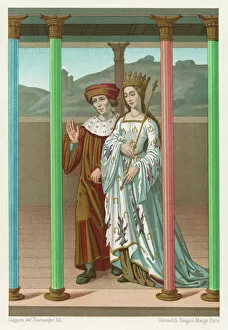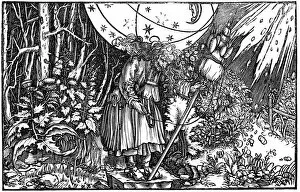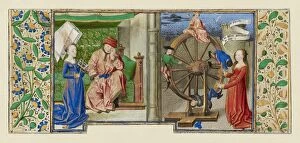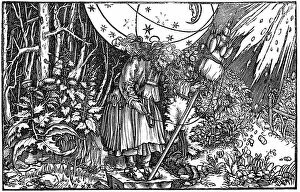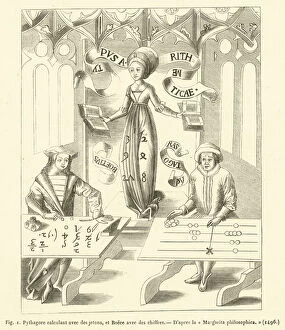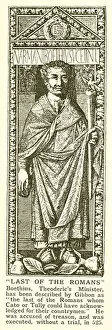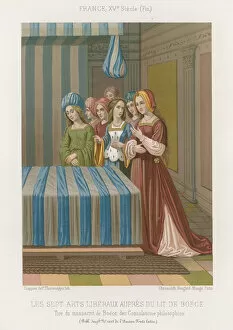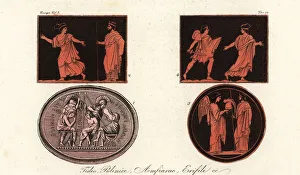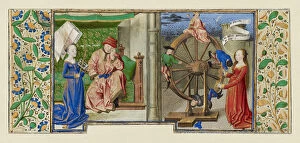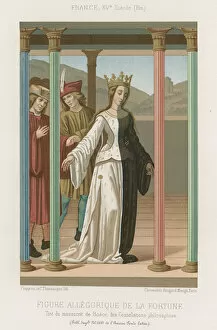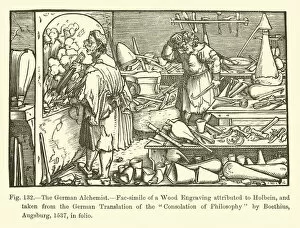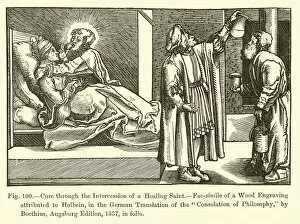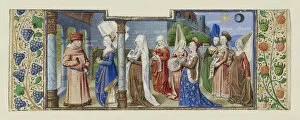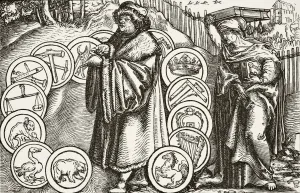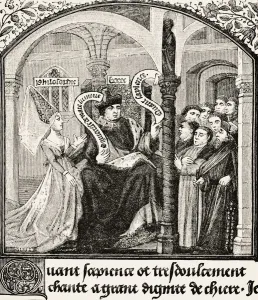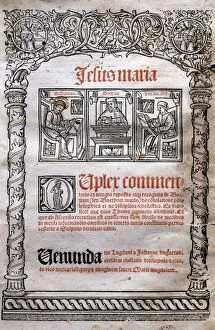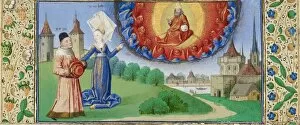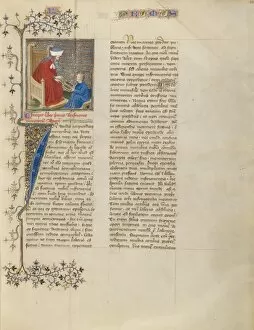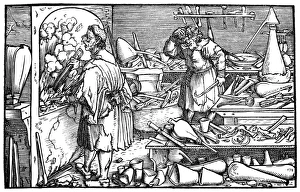Boethius Collection
Boethius, a renowned Roman philosopher and statesman of the 5th century, continues to captivate us with his profound concepts and timeless philosophy
All Professionally Made to Order for Quick Shipping
Boethius, a renowned Roman philosopher and statesman of the 5th century, continues to captivate us with his profound concepts and timeless philosophy. In this captivating artwork by Hans Holbein the Younger from 1547, we see an old woman spinning, possibly a witch or fairy symbolizing fate's intricate web. Pythagoras and Boethius, two intellectual giants of their time, are depicted together in another engraving. Pythagoras calculates with tokens while Boethius uses numbers, showcasing their shared passion for knowledge and wisdom. Known as the "Last of the Romans, " Boethius left an indelible mark on history through his writings on various subjects. One such work is "The Consolation of Philosophy, " where he seeks solace in philosophical contemplation amidst personal adversity. In yet another enchanting chromolitho print, Philosophy herself appears to console Boethius during his darkest hours. The seven liberal arts stand at his bedside as loyal companions - grammar, rhetoric, logic, arithmetic music geometry astronomy - representing the breadth of human knowledge that he devoted himself to understanding. Boethius' influence extends beyond philosophy into literature and art. His depiction can be found in depictions of "The Seven against Thebes" as well as in miniatures from his own work "Consolation de philosophie. " These artistic interpretations showcase how deeply ingrained his ideas were within society. Even today, scholars continue to study Boethian thought for its insights into ethics and metaphysics. His legacy lives on through countless discussions about free will versus determinism and the nature of happiness. As we delve into the world through these diverse artworks spanning centuries, we are reminded that true wisdom transcends time, and is a testament to our enduring fascination with this remarkable Roman philosopher who dared to challenge conventional thinking and seek answers beyond what meets the eye.

